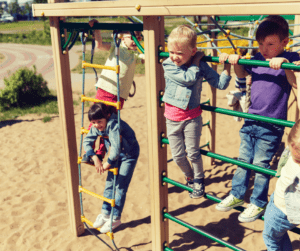Summer often brings to mind relaxation and long days of play, but for children with autism, this season can pose unique challenges. The abrupt end to the school year often means the loss of consistent routines that children depend on for emotional stability and skill maintenance. By incorporating structured activities and planning ahead, families can create summer routines for children with autism that promote success and growth throughout the year.
Benefits of Summer Structure for Kids with Autism
Establishing structured summer routines for children with autism provides both immediate and long-term benefits. When children maintain consistent routines during the summer, they avoid skill regression and are better prepared to transition back to school in the fall.
Structured learning for children with autism during summer also helps reinforce life skills such as communication, self-regulation, and independence. These routines create a foundation for long-term skill development, empowering children to build on their strengths and achieve greater independence over time.

Think of routines as a way to maintain momentum. With consistent summer activities, kids continue to develop and grow without starting from scratch when school begins again. Small, steady progress each day can lead to big improvements in overall quality of life.
Importance of Structure for Kids with Autism During Summer
The structure provided during the school year is essential for children with autism. It helps them practice important skills like social interaction, communication, and cooperation. However, the sudden transition to summer often disrupts these routines, creating challenges for both children and their families.
Without structured summer activities, children may lose opportunities to reinforce the skills they worked on during the school year. This break in routine can lead to skill regression and make it harder for kids to stay engaged in meaningful activities. Structured summer routines are an effective way to bridge the gap, maintaining continuity and helping children with autism feel secure and supported during the school break.
Challenges for Families of Kids with Autism During Summer
For many families of children with autism, summer brings a unique set of challenges. Without the predictability of school, parents often feel the pressure of filling long days with purposeful activities. While it may be tempting to rely on screen time or unstructured free play, too much downtime can lead to restlessness for children and stress for caregivers.
Additionally, the lack of structured routines during summer can result in fewer opportunities to practice essential skills like functional communication, daily living tasks, and social interaction. This can leave both parents and children feeling overwhelmed. Families can benefit greatly from planning ahead and implementing autism-friendly summer routines to create a balance between free time and structured activities.
Effective Summer Routines for Kids with Autism 
Creating a successful summer schedule for children with autism doesn’t have to be complicated. The goal is to establish simple, consistent daily routines that work for your family. Focus on maintaining predictable activities, such as:
- Wake-up and bedtimes: Try to keep sleep schedules close to the school-year routine.
- Meals: Stick to regular meal and snack times to maintain a sense of structure.
- Daily tasks: Encourage participation in age-appropriate chores, like brushing teeth or making the bed.
- Community outings: Visit libraries, parks, or swimming pools to practice social skills and explore new environments.
The key is consistency, not perfection. Even a loosely structured day can provide the predictability children with autism need to thrive.

Autism Support Services for Summer Success
At BlueSprig, we understand how crucial structure is for children with autism, especially during the summer months. Our autism therapy services are designed to help families create effective routines and maintain progress while school is out.
Our clinical teams can assist with planning summer routines, offering skill-building activity ideas, and providing additional therapy hours when needed. These structured skill-building activities create protected time for children to practice communication, independence, and social interaction.
Families are encouraged to collaborate with their child’s school and therapy providers to set summer goals and ensure consistent progress. Caregivers can also benefit from training to enhance their confidence in supporting their child’s needs at home.
With the right support, summer can be an opportunity for growth and progress for children with autism. By incorporating structured summer activities and maintaining consistent routines, families can help their children thrive during the school break and beyond.
At BlueSprig, we’re committed to providing autism support services that help children and families succeed. Whether you’re looking for assistance in creating summer routines or increasing therapy hours, we’re here to help. Let us partner with you to build a summer full of structure, growth, and meaningful experiences for your child. Learn more at bluesprig.com.
